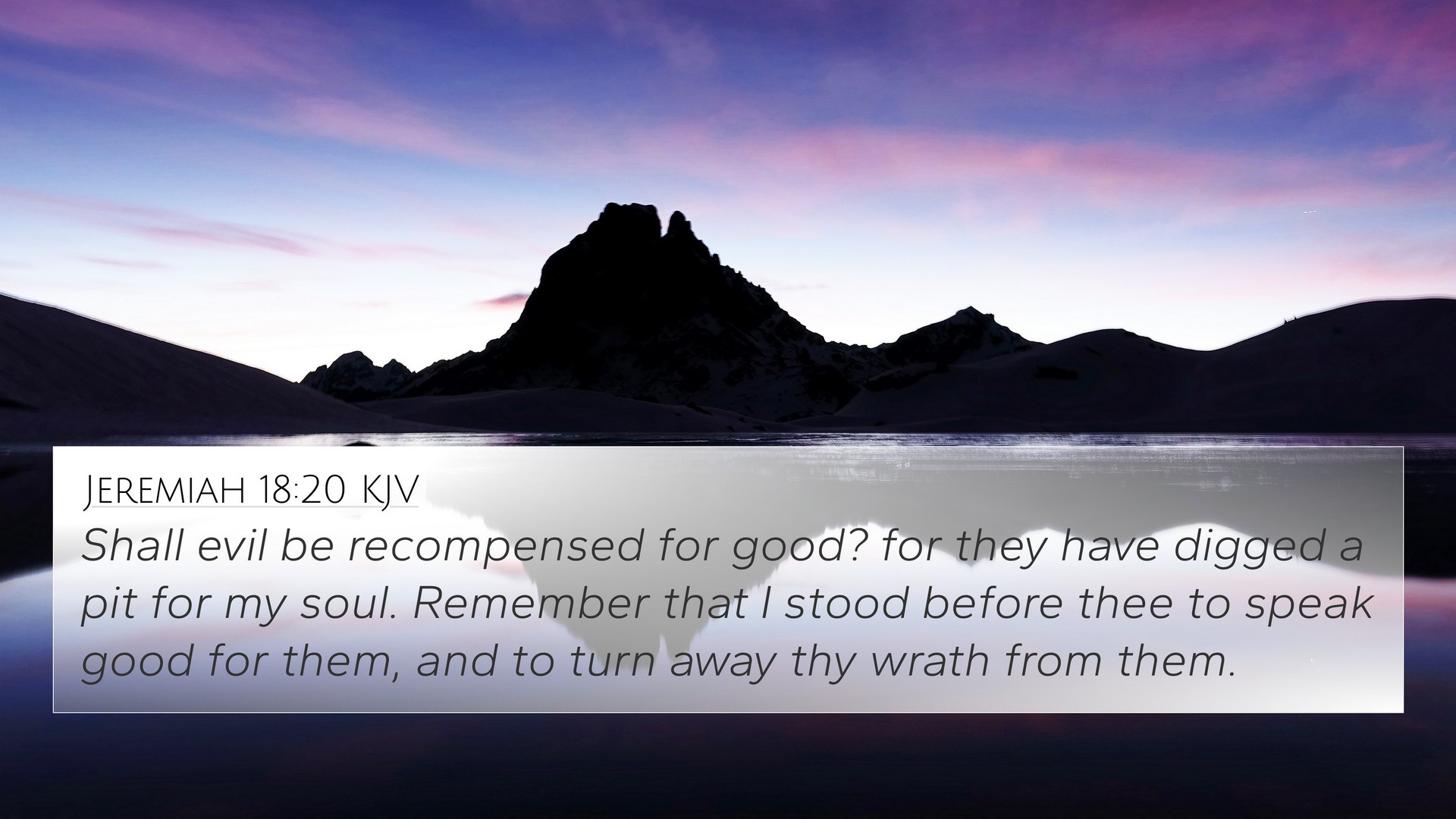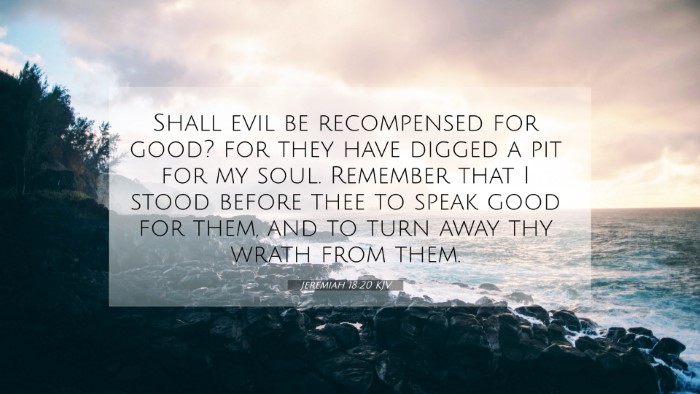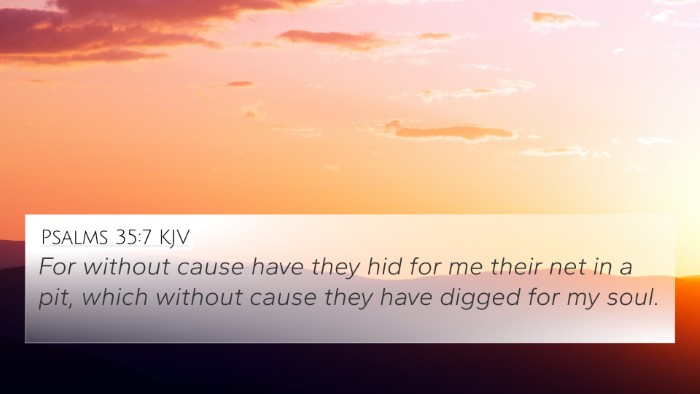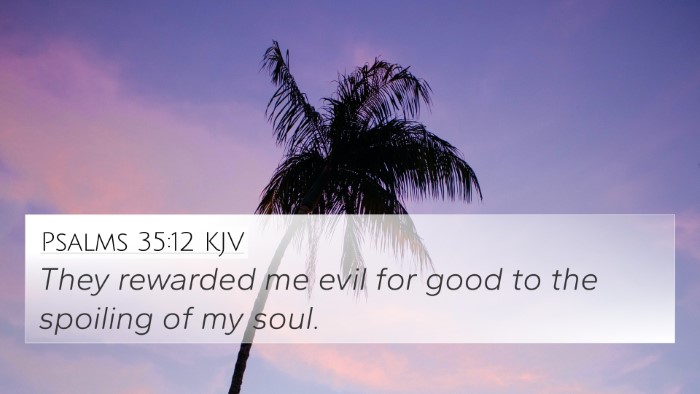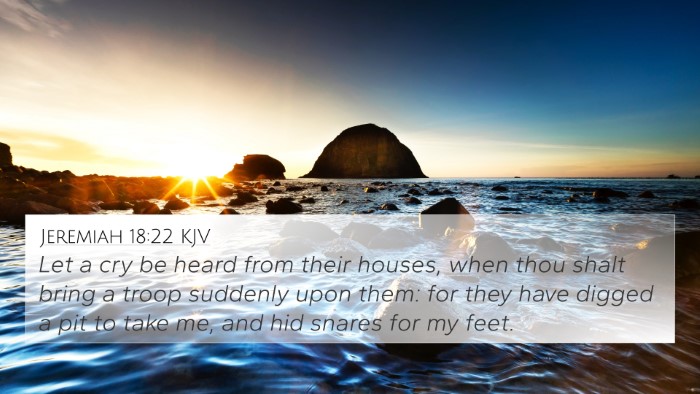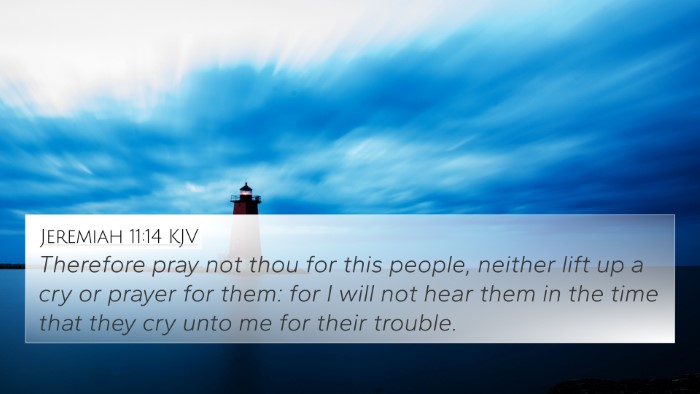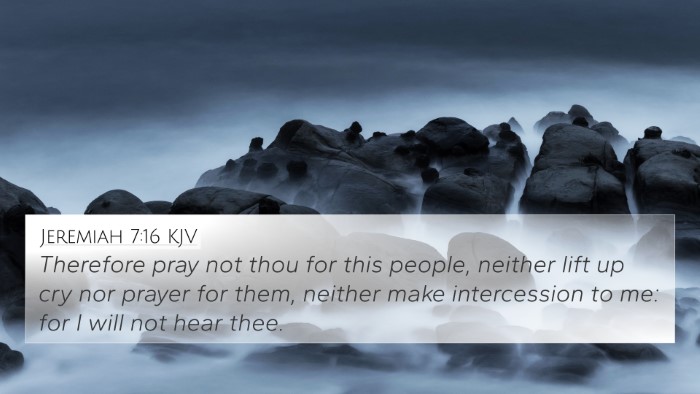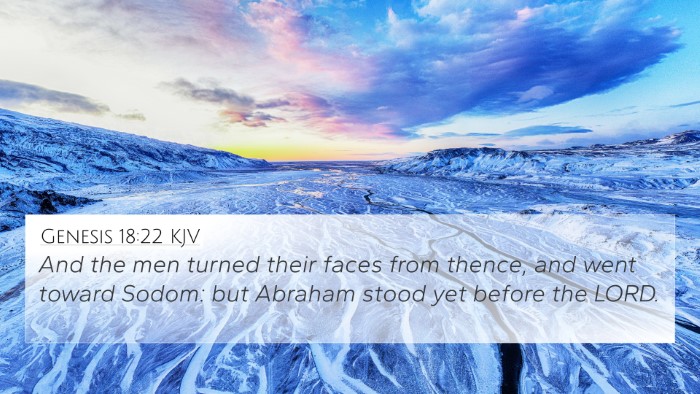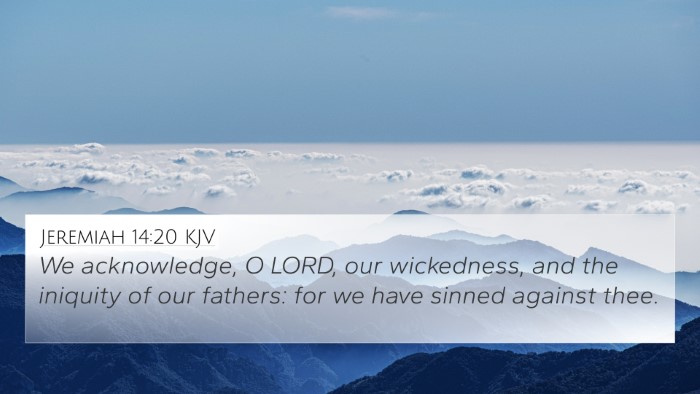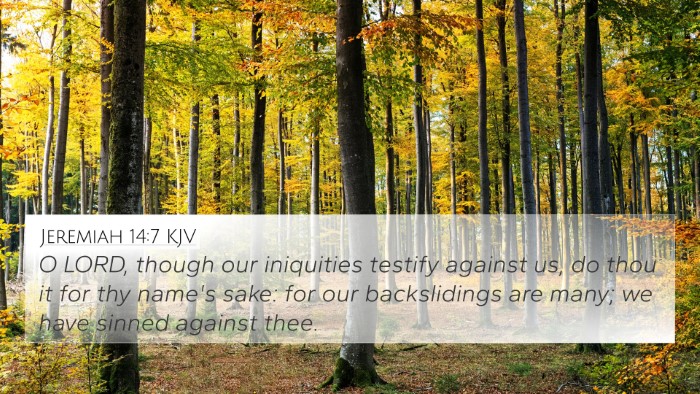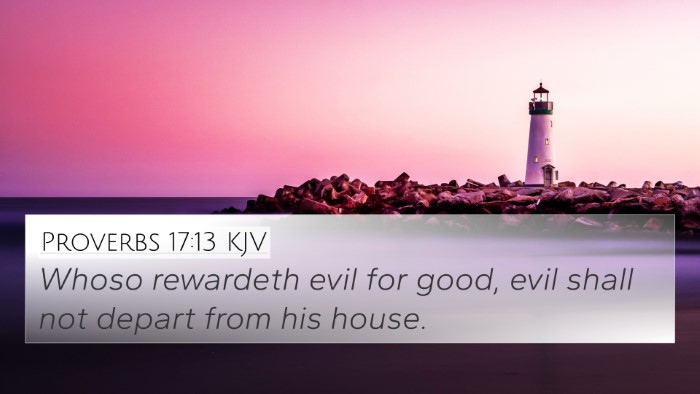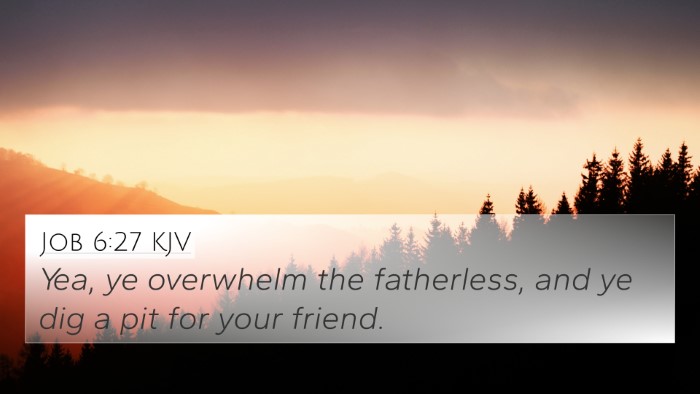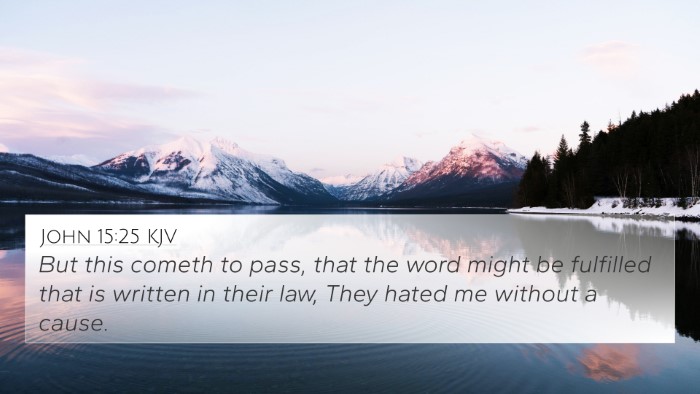Understanding Jeremiah 18:20
Jeremiah 18:20 states, "Shall evil be recompensed for good? For they have digged a pit for my soul. Remember that I stood before thee to speak good for them, and to turn away thy wrath from them." This verse encapsulates a moment of deep concern and intercession on behalf of the people of Judah, illustrating the dynamics of good and evil in the context of divine justice and mercy.
Overview and Context
This passage occurs within a larger context where Jeremiah the prophet laments the treachery he faces from his own people. He appeals to God, emphasizing the injustice of repaying good with evil. As he reflects on his role in speaking positively for the people, he underscores the document of prophetic intercession, a vital theme throughout the Bible.
Commentary Insights
-
Matthew Henry's Commentary: Henry highlights the profound irony in the treatment of Jeremiah. Despite his good intentions and efforts in prayer to avert disaster, he faces hostility. This reflects the broader theme of God's messengers often being rejected even when they seek good for others.
-
Albert Barnes' Notes: Barnes notes that the “pit” symbolizes the schemes of those who seek to harm the prophet. The verse encourages understanding that while Jeremiah stands before God for the people, they are actively plotting his destruction. This serves to illustrate the ungratefulness and wickedness of those who turn against God's anointed.
-
Adam Clarke's Commentary: Clarke elucidates on the nature of human ingratitude, suggesting that evil is often met with a lack of appreciation for the good done by others. Jeremiah's plea accentuates the importance of remembering those who advocate for others, encouraging readers to reflect on their response to prophetic voices in their lives.
Thematic Connections
Jeremiah 18:20 invites reflection on the theme of intercession and the cost of prophetic ministry. It sets the stage for understanding the relationship between God's judgment and mercy, emphasizing that good may sometimes lead to unjust treatment.
Cross-References
- Psalm 35:12: "They rewarded me evil for good to the spoiling of my soul."
- Matthew 5:10: "Blessed are they which are persecuted for righteousness' sake."
- Romans 12:17: "Recompense to no man evil for evil."
- Luke 6:27-28: "But I say unto you, Love your enemies, do good to them which hate you."
- Acts 7:51-53: Stephen's rebuke of the Jewish leaders serves as a parallel to Jeremiah's experiences.
- 1 Peter 3:9: "Not rendering evil for evil, or railing for railing."
- Jeremiah 20:10: "For I heard the defaming of many, fear on every side."
Connecting to Wider Themes
This verse and its implications resonate throughout both the Old Testament and the New Testament. It asks believers to consider how they respond to good deeds versus evil intentions of others, urging an examination of personal and communal faith.
Tools for Cross-Referencing
To explore the connections between Bible verses, one can utilize various tools:
- Bible Concordance: A tool to find specific words and their occurrences throughout scripture.
- Bible Cross-Reference Guide: Helps identify verses that relate to each other.
- Cross-Reference Bible Study: Encourages in-depth studies by using linked verses.
- Bible Reference Resources: Compilations of key themes and scripture links.
Conclusion
Jeremiah 18:20 encourages believers to engage with the complex dynamics of good and evil, justice and mercy. It challenges us to act with integrity, just as Jeremiah did, even when faced with adversity. Through cross-referencing and comparisons, one can gain deeper insights into the Biblical narrative and its teachings on human relationships and divine justice.
